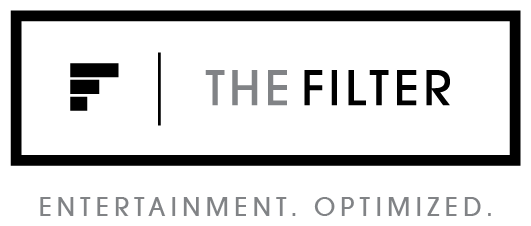Almost Famous: David Maher Roberts of The Filter
This week, we interviewed David Maher Roberts, CEO of The Filter. The Filter has been around for awhile, but has been reinvented as a service for content companies. It takes what David describes as some pretty high-caliber math and marries it to user data to spit out things users want to see and hear.
Who: David Maher Roberts
What: CEO
Why: David came to The Filter from the publishing world. The Filter used to be a music-selection engine (pre-Apple Genius). Today, after a major overhaul, David says it’s trying to be a recommendation engine that brings “the world of entertainment, filtered for me.” Now The Filter offers that service to businesses that want a recommendation engine on top of their own content services. NBC is the company’s latest major client.
Where: thefilter.com (Web site); @davidpmr (Twitter); Bath, United Kingdom (analog place)
Who Else: Apple’s (AAPL) Genius is trying to supply the service on top of its own content engine in iTunes. Pandora is in the mix too.
Five Stats You Won’t Find in His Facebook Profile:
Man of the World: I don’t know where my accent is from. I’m half French and half English and was raised in international schools in Brussels. I’m a true European.
Started Life: I went into journalism as a photographer. When I was 24, I started a couple of magazines, which didn’t go well, but I got picked up by a U.K.-based publisher (Future Publishing) and moved up their ranks.
Biggest Influence: Chris Anderson, founder of Future Media (David’s former employer) and now of TED.
Real Passion: I was trained as a jazz drummer from the age of 10 and always played in bands and things.
On His Playlist: All based around French Electro Pop. Right now, I’ve fallen in love with Owl City. It represents exactly the sort of music I grew up with in France. It just makes me smile. My staple diet is much more British. Stuff like the Twang. My favorite band of all time is Belle and Sebastian.
Bio in 140 Characters
Lives in Bath, U.K., but began life a citizen of Europe. David commutes globally so his family doesn’t have to.
The Five Questions
Break this down for me. What does The Filter do now, and why is Peter Gabriel involved?

Yeah, so Peter Gabriel was one of our founders and is an investor now. He and our CTO, Martin Hopkins, had the idea about 10 years ago that we would need some kind of tool to help us navigate the world of content when we had too much choice. Our model has changed since then, but we still do basically the same thing. Today, we are basically in the SaaS, software-as-a-service, business. Our technology gets laid on top of other businesses’ content to deliver more relevant recommendations.
A good example is Nokia (NOK). They use us to combine information about your content preferences and your geolocation to give you recommendations about events nearby.
Let’s say I’m listening to music online. How much information about me does my music service need to give you in order for this to work?
Well, what we offer to most of our customers is an anonymous service. We do a lot of personalized services too, though. We can do a good job not knowing anything about the person and just about the session they are in right now. We take input like the piece of music, how many times you’ve listened, whether or not you’ve shared it or saved it to a play list, and then recommend statistically similar content. At its core, our product is a Bayesian inference engine, so it assigns mathematical probabilities to whether or not you will like something and then computes the best fit. We blend the metadata connections with the behavioral connections, and then we filter the output.
I’m a little hazy on how you connect consumers to their data and then make recommendations. You said you do use individual-level data sometimes. Do you guys use data collected from one company to inform the algorithm that recommends content at another?
Well, there are two things we are being careful about, as you’d imagine. Generally, we use data from within an organization to inform the decisions made there. We do anonymize and aggregate all of the data and use that for all of our customers. The individual-level data we try to keep anonymous.
What does a paper publishing guy have to offer a digital recommendation engine?
I came in originally as a consultant to help them with their “come to market” strategy. I was running all of Future Publishing’s Web operations for Europe and stumbled upon Eden Ventures, who are the VCs behind The Filter. I came in, and there was already a CEO. I didn’t realize they were trying to replace him, but we worked on what they should be doing and at the end of it they offered me the job. I would say that I come in from the content and publishing world, and I know how media companies make the kinds of decisions like using a service like The Filter.
What is the eventuality you guys hope for here? Is success in ubiquity or in being bought up?
I think my goal with The Filter is to grow it to be so large that it is the glue that connects people to their content. Once that happens, I think we’d hope for a large business to be so connected to our technology that they want to own it.














